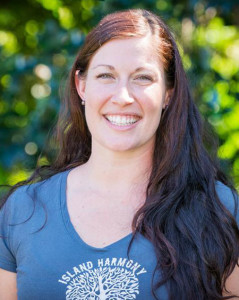By: Danielle Zandbergen, MA
Therapist
In celebration of Earth Day, I thought it fitting to write about nature and how it has proven to be one of the most important aspects within the human condition. Nature has been shown to inherently support those struggling with anxiety, depression, PTSD, stress, low self-esteem, obesity, substance abuse and addiction, social insecurity, obsessive-compulsive behaviors (many of which can be technology or materialistic), physical-verbal-emotional violence, lack of empathy or compassion…the list goes on. A great amount of children and adults alike struggle with a variety of pathologies and nature continues to prove to be an essential, positive, and healthy intervention for many, if not all individuals. It is surprising that more therapeutic programs, treatment interventions, or even academic settings haven’t integrated the exploration of nature.
Let’s face it – humans have a damaged relationship with nature and while many areas of the world are running out of natural resources that are absolutely essential to our very livelihood (most particularly water and food sources), we continue to be blinded by material goods that do not provide the same amount of happiness, or sustenance, as nature does. The very medicines we typically use are derived from a variety of herbs, spices, roots, and leaves from many kinds of plants and flora. Lavender cannot only be used for its scent but can also be used as an antibacterial, antiseptic and analgesic substance for a variety of ailments such as acne or skin irritation, as well as a natural soothing herb to help alleviate stress, cough and cold symptoms. Basil, most commonly known for cooking, can also be used for headaches, stings and bites, ear infections and help with stress reduction. Lemon balm alleviates anxiety, insomnia, upset stomach, and even helps with cold sores. Rosemary is sometimes used to support memory and focus, and may even elevate one’s mood. If one looks closely, medicine can literally be found in our backyards!
When people engage in the outdoors, a natural sense of wonder and awe opens up a heightened awareness of connection. It rekindles a sense of belonging to the natural world that one cannot experience elsewhere. Some studies have shown that students who often feel fatigue, anxiety and stress have shown an overall sense of restoration both psychologically and physiologically after they take a walk in the woods or a nearby park. In contrast, walking through a crowded shopping mall or around tall buildings with little to no greenery has actually been shown to lower overall self-esteem and increase psychological stress.
Horticultural therapy has been shown to be extremely effective in stress management, treating alcohol and substance abuse, enhancing self-esteem, help elderly individuals with feelings of social isolation, and curtailing burnout experienced by healthcare providers. On top of the psychological support, horticultural therapy decreases one’s dependence on chemically treated food products and increases the inclination to grow fruits and vegetables in our very own garden. In a book titled, Ecotherapy: Healing with Nature in Mind, edited by Linda Buzzell and Craig Chalquist, quotes “If you want to enhance self-concept, self-esteem, and self-confidence, facilitate treatment of the mentally ill, or improve family relationships, employing nature is a potent therapeutic intervention. Nature-guided therapy is about putting these demonstrated benefits into therapeutic practice, in ways that will most enhance the achievement of the person’s therapeutic goal.”
So what are you waiting for? Are you feeling stressed, anxious or frustrated? Do you feel like you need a “reset” button? Are you having a hard time concentrating? Take a walk in a nearby park. Embark on an adventure on a weekend camping trip instead of going shopping for things you probably don’t need. Save some money and grow your own natural and organic food, and most of all, take advantage of the cheapest medicine out there…nature! Happy Earth Day!
“Nature holds the key to our aesthetic, intellectual, cognitive, and even spiritual satisfaction.”
– E.O. Wilson
